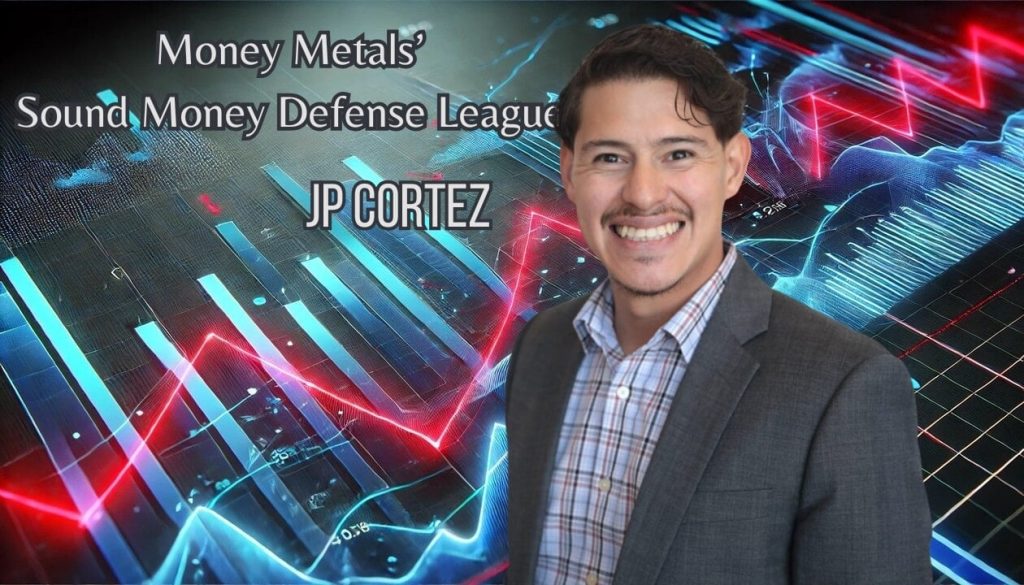In a recent interview, JP Cortez, Executive Director of the Sound Money Defense League, celebrated the league’s achievements over the past decade. Founded and supported by Money Metals Exchange, the organization has consistently worked to advocate for the unfettered use of gold and silver as money and investment instruments. This year marks an important milestone, as the league is not just commemorating its 10th anniversary but also reflecting on numerous legislative achievements that bolster the use of precious metals. The organization is focused on dismantling the obstacles that prevent individuals from freely utilizing gold and silver for both investment and transactional purposes.
In 2024, the Sound Money Defense League recorded seven significant legislative victories across various states, which included the abolition of taxes on precious metals and reaffirmation of gold and silver as legal tender. One standout success was Utah’s groundbreaking decision to allocate $180 million toward physical gold reserves, representing a pivotal shift toward alternative reserve systems. These legislative changes are seen as critical responses to the declining trust in dollar-based financial mechanisms, with many states and countries reconsidering their reliance on the U.S. dollar. This evolving landscape not only enhances financial autonomy for states but also signals a growing recognition of the value of precious metals in maintaining economic stability amidst global uncertainties.
The Sound Money Defense League recently introduced the 2025 Sound Money Index, a measurement system that evaluates all 50 U.S. states based on their policies towards gold and silver. The Index ranks states according to criteria such as tax attitudes, legal tender recognition, and state investment in precious metals. Wyoming emerged as the leading state for its favorable sound-money policies, attracting businesses and potential investors in the precious metal sector. Conversely, Kentucky was critiqued for its decision to veto a bill aimed at removing taxes on precious metals, drawing attention to the often oversimplified assumptions surrounding the barriers that hinder the advancement of sound money. JP Cortez pointed out that policymakers frequently mistake the precious metals industry as simply a revenue stream, failing to recognize the economic opportunities that sound money policies could provide locally.
Education plays a vital role in the Sound Money Defense League’s mission to address skepticism around the use of precious metals. To this end, the organization launched two flagship educational initiatives: the Sound Money Scholarship and the Sound Money Fellowship. These programs have collectively provided over $100,000 in funding to students and researchers interested in exploring monetary policy and the significance of precious metals. The impressive response to the scholarship program, receiving more than 200 applications from global students, indicates a rising interest in sound money concepts. The fellowship aims to support advanced research and promote deeper understandings of monetary theory, which are crucial for making informed decisions on policies that support sound money.
As 2024 draws to a close, JP Cortez remains optimistic about forthcoming legislation advocating for sound money principles. Currently, 45 states have eradicated sales taxes on precious metals, and efforts are underway to address the remaining five states still imposing such taxes. Additionally, with 13 states having abolished capital gains taxes on gold and silver, there are promising signs of broader legislative support aimed at reducing barriers surrounding precious metals. Cortez recalled an earlier time when legislators were hesitant to engage with sound money initiatives; now, states are proactively seeking the league’s guidance. Future initiatives include encouraging state investments in gold reserves and the establishment of local bullion depositories that would help ensure minimal reliance on centralized storage facilities.
Looking toward the next decade, Cortez envisions a future where all tax barriers on precious metals are completely eliminated, allowing individuals to utilize gold and silver freely as viable monetary options. He believes that such changes could ignite innovations in monetary systems, including the creation of fractional precious metals, digital currencies backed by tangible assets, and various entrepreneurial ventures in finance. By citing economist F.A. Hayek’s views on currency and its monopolization by governments, Cortez underscored the potential transformative impacts of reintroducing sound money principles that encourage wealth creation and financial autonomy.
Cortez’s bullish perspective on gold and silver reflects broader economic trends, particularly in light of rising national debt, which has now surpassed $36 trillion. He acknowledges escalating investments in gold by states like Utah, suggesting that prices for precious metals are likely to rise in the coming years. His assertion that gold and silver will continue to be strong investment avenues hinges on the relentless government debasement of currency and ever-growing deficit spending. In conclusion, the achievements of the Sound Money Defense League point to an emerging acknowledgment of the intrinsic value of precious metals. With an increasing number of states adopting sound money policies, Cortez anticipates enhanced financial stability and sovereignty for individuals, businesses, and governments, reinforcing the pivotal role of gold and silver in modern monetary systems.

